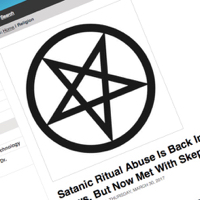Rascals case in brief
In the beginning, in 1989, more than 90 children at the Little Rascals Day Care Center in Edenton, North Carolina, accused a total of 20 adults with 429 instances of sexual abuse over a three-year period. It may have all begun with one parent’s complaint about punishment given her child.
Among the alleged perpetrators: the sheriff and mayor. But prosecutors would charge only Robin Byrum, Darlene Harris, Elizabeth “Betsy” Kelly, Robert “Bob” Kelly, Willard Scott Privott, Shelley Stone and Dawn Wilson – the Edenton 7.
Along with sodomy and beatings, allegations included a baby killed with a handgun, a child being hung upside down from a tree and being set on fire and countless other fantastic incidents involving spaceships, hot air balloons, pirate ships and trained sharks.
By the time prosecutors dropped the last charges in 1997, Little Rascals had become North Carolina’s longest and most costly criminal trial. Prosecutors kept defendants jailed in hopes at least one would turn against their supposed co-conspirators. Remarkably, none did. Another shameful record: Five defendants had to wait longer to face their accusers in court than anyone else in North Carolina history.
Between 1991 and 1997, Ofra Bikel produced three extraordinary episodes on the Little Rascals case for the PBS series “Frontline.” Although “Innocence Lost” did not deter prosecutors, it exposed their tactics and fostered nationwide skepticism and dismay.
With each passing year, the absurdity of the Little Rascals charges has become more obvious. But no admission of error has ever come from prosecutors, police, interviewers or parents. This site is devoted to the issues raised by this case.
On Facebook
Click for earlier Facebook posts archived on this site
Click to go to
Today’s random selection from the Little Rascals Day Care archives….
Click for earlier Facebook posts archived on this site
Click to go to
Today’s random selection from the Little Rascals Day Care archives….
Press decides to let Sir Edward Heath rest in peace
 April 6, 2017
April 6, 2017
“Beginning with the McMartin preschool case in 1984… much of the media accepted without question fantastic claims brought by police, parents and prosecutors. But by the early 1990s when the courts began tossing out convictions based on recovered memories, coached testimony, and magical thinking, the media backed away….
“Two stories in the U.S. and British press have resurrected SRA: Pizzagate and abuse claims lodged against deceased British Prime Minister Edward Heath. However, this time round these stories are being treated with skepticism ….
“Abuse is a serious enough crime without having the false and inflammatory adjective of ‘satanic’ appended to it. I am glad to see The Sun and Mail on Sunday are treating this aspect of the claims as being ridiculous….”
– From “Satanic Ritual Abuse Is Back In The News, But Now Met With Skepticism” by George Conger at the Media Project (March 30)
![]()
Less bonding, less crying, more thinking – why not?
Jan. 21, 2013
“According to advocates (of victim impact statements), they allow victims to personalize the crime and elevate the status of the victim by describing the effect the crime has had on them or their families. Some laud the courtroom ritual as an aid in the emotional recovery of the victim…. A few legal scholars suggest that the well-intentioned personalization of a crime can blur the line between public justice and private retribution….”
– From “Death by Treacle” by Pamela Haag in the American Scholar (Spring 2012)
“Prosecutor Nancy Lamb and the mothers of the victims burst into tears. Court officials handed out tissues.”
– From “Day Care Owner Convicted on 99 Counts of Child Abuse” by the Associated Press (April 22, 1992)
Count me with those “few legal scholars” who doubt justice is well served by injections of sentimentality. (Although Bob Kelly’s sentencing seems to have concluded without victim impact statements, prosecutors ensured an ample display of mawkishness – the front row was packed with supposed child-victims holding tight to their dolls and teddy bears.)
But sentimentality also extends to the blindered bonding of Little Rascals prosecutors and parents.
What if Nancy Lamb had managed to keep even the slightest professional distance between herself and the parents, instead of being swallowed up in their manic cause? Might she have been able to glimpse reality?
And what if Bill Hart had avoided dating (and later marrying) one of those parents?
Pennsylvania prosecutor Alan Rubenstein managed to avoid such pitfalls – why couldn’t others?
By time to testify, children knew their lines
Jan. 30, 2013
“They have been through more dress rehearsals than the cast of ‘Cats.’”
– Joe Cheshire, lawyer for Betsy Kelly, protesting the latitude given the prosecution in preparing Little Rascals children to testify (New York Times, Aug. 19, 1991)
‘Believe the children’ (after they’ve been interrogated into submission)

Wright
Dec. 10, 2017
“Controversy over the credibility of children’s testimony has congealed into a debate between those who demand that we ‘believe the children’ no matter how outlandish their allegations and those who maintain that children are inherently so suggestible that their testimony can never be relied on upon. An interesting question that remains is why children are not believed when, as often happens, they specifically deny charges at the time they first arise….
“Why isn’t the child allowed to say no? A widening body of research shows that repeated questioning of children, especially by authoritative adults with a specific bias, will often lead to answers that conform to the interviewers’ expectations….
“Divorce, neglect, unsafe neighborhoods, bad schools – these primary social problems are not the fault of the people to whom we have entrusted our children. Forcing children to invent stories of abuse is abuse….”
– From “Child-care Demons” by Lawrence Wright in The New Yorker (Oct. 3, 1994)
![]()











0 CommentsComment on Facebook